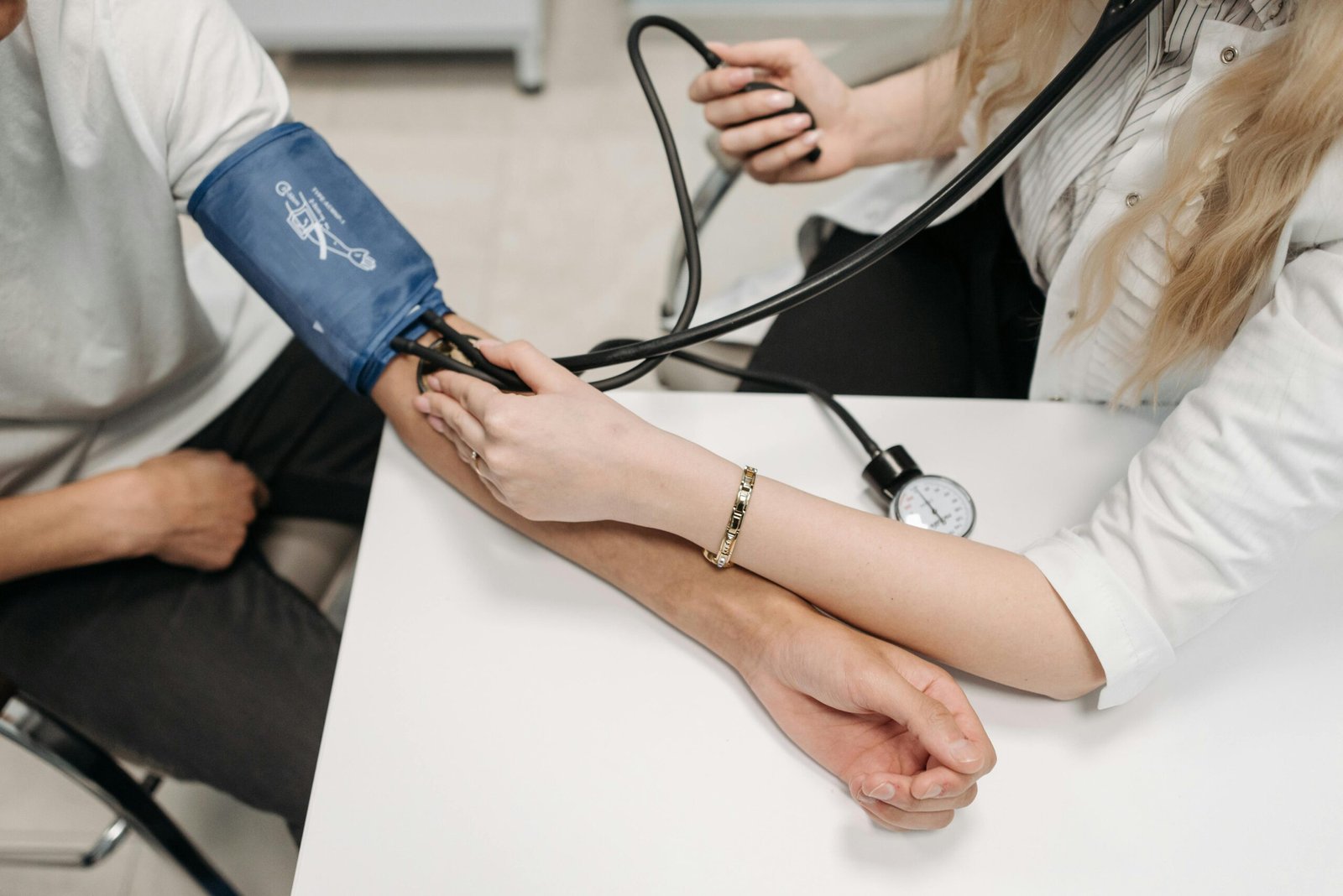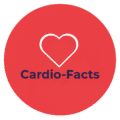
High blood pressure, or hypertension, is often called the “silent killer”—not because it strikes suddenly, but because it quietly damages the body for years before symptoms appear. According to the American Heart Association (AHA), nearly 1 in 2 adults in the United States has elevated blood pressure, yet many remain unaware of it.
What Is Blood Pressure?
Blood pressure is the force that circulating blood exerts against the walls of the arteries. It’s measured in millimeters of mercury (mmHg) and expressed as two numbers:
- Systolic (the top number): pressure when the heart beats
- Diastolic (the bottom number): pressure when the heart rests between beats
Example: a reading of 120/80 mmHg means 120 systolic and 80 diastolic.
When Is It Considered Hypertension?
According to the latest ACC/AHA Guidelines (2025), blood pressure categories are defined as follows:
- Normal: systolic <120 mmHg and diastolic <80 mmHg
- Elevated: systolic 120–129 mmHg and diastolic <80 mmHg
- Stage 1 Hypertension: systolic 130–139 mmHg or diastolic 80–89 mmHg
- Stage 2 Hypertension: systolic ≥140 mmHg or diastolic ≥90 mmHg
- Severe Hypertension (Hypertensive Crisis): systolic >180 mmHg and/or diastolic ≥120 mmHg
Diagnosis should be based on the average of at least two readings on two separate occasions, and confirmed with home (HBPM) or ambulatory (ABPM) measurements.
What Causes High Blood Pressure?
Hypertension can be:
- Primary (essential): No clear cause; accounts for ~90–95% of cases.
- Secondary: Result of an identifiable condition (e.g., kidney disease, thyroid problems, certain medications).
Key Risk Factors
- Non-modifiable: Age, genetics, ethnicity (higher risk in African Americans)
- Modifiable:
- High salt intake
- Sedentary lifestyle
- Obesity
- Smoking and alcohol
- Stress
- Diabetes and high cholesterol
Why It Matters: Complications of Hypertension
Unchecked high blood pressure can damage:
- Heart → heart failure, myocardial infarction
- Brain → stroke, cognitive decline
- Kidneys → chronic kidney disease
- Eyes → retinopathy, vision loss
- Arteries → atherosclerosis, aneurysms
A 10 mmHg reduction in systolic BP reduces major cardiovascular events by ~20%, according to meta-analyses and guidelines.
How to Keep Blood Pressure Under Control
1. Lifestyle Changes (First-Line Therapy for Most)
According to ACC/AHA and CDC:
- DASH Diet: Rich in fruits, vegetables, whole grains, low-fat dairy
- Sodium restriction: <1,500–2,300 mg/day
- Weight loss: 1 kg lost can reduce SBP by 1 mmHg
- Physical activity: 150 minutes/week of moderate aerobic exercise
- Limit alcohol: <2 drinks/day (men), <1 (women)
- Quit smoking: Reduces cardiovascular risk instantly
2. Pharmacologic Therapy
Pharmacologic treatment is generally recommended for Stage 1 Hypertension only if the 10-year ASCVD risk is ≥10%, while lifestyle modifications are advised for lower-risk patients. The therapeutic goal for most individuals is <130/80 mmHg, provided it is well tolerated.
First-line antihypertensive agents:
- Thiazide diuretics
- ACE inhibitors
- ARBs
- Calcium channel blockers (CCBs)
Choice depends on comorbidities (e.g., ACEi/ARBs for diabetics, CCBs for Black patients per guidelines).
3. Monitoring and Follow-Up
- Home BP monitoring is now recommended to avoid white coat effect.
- BP targets: Generally <130/80 mmHg, personalized based on age, comorbidities, and risk tolerance.
Emerging Strategies and Technologies
- Wearables and smartphone apps: Aid in remote BP tracking
- Polypill strategies: Combining multiple drugs for better adherence
- Renal denervation (in resistant hypertension): still under investigation, promising results in trials like SPYRAL HTN-ON MED
Takeaway Message
High blood pressure is common, dangerous, and highly treatable. With the right combination of lifestyle changes and, if needed, medications, you can take control of your blood pressure and protect your heart, brain, and kidneys.
Don’t wait for symptoms—check your BP regularly and take action early.
💡 See also
How to Choose the Right Blood Pressure Monitor (2025 Guide)
Best Blood Pressure Monitors 2025: Omron vs iHealth vs Withings (Comparison Guide)
📚 Scientific References
- Whelton PK, et al. “2017 ACC/AHA Guideline for the Prevention, Detection, Evaluation, and Management of High Blood Pressure.” Hypertension. 2018;71:e13–e115. → ahajournals.org – full guideline (Hypertension / Circulation link)
- CDC – High Blood Pressure Fact Sheet → CDC – High Blood Pressure (fact sheet)
- Ettehad D, et al. “Blood pressure lowering for prevention of cardiovascular disease and death: a systematic review and meta-analysis.” Lancet. 2016;387(10022):957-967. → Lancet – Ettehad et al. (2016) abstract / article
- Carey RM, et al. “Resistant Hypertension: Detection, Evaluation, and Management.” Hypertension. 2018;72:e53–e90. → ahajournals.org – Resistant Hypertension article
⚠️ Disclaimer: The content on Cardio-Facts is for informational and educational purposes only and does not constitute medical advice. Always consult a qualified healthcare professional regarding your health. Read our full disclaimer and legal policies.
